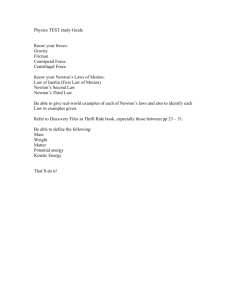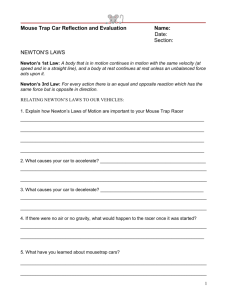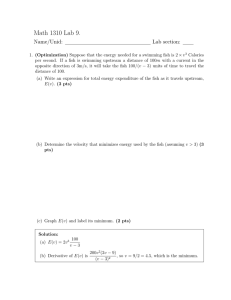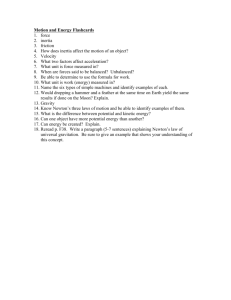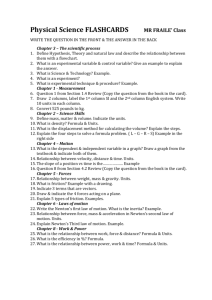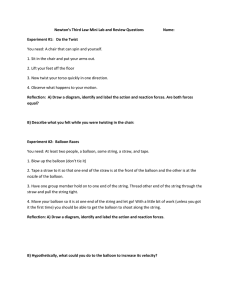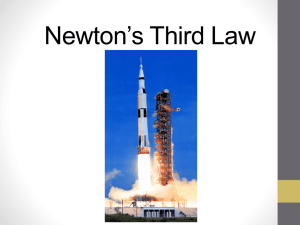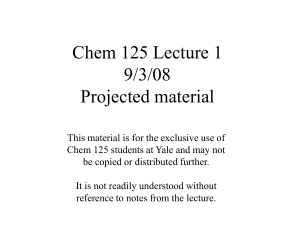Balloon racers rely on Newton's Third Law of Motion. As the balloon
advertisement
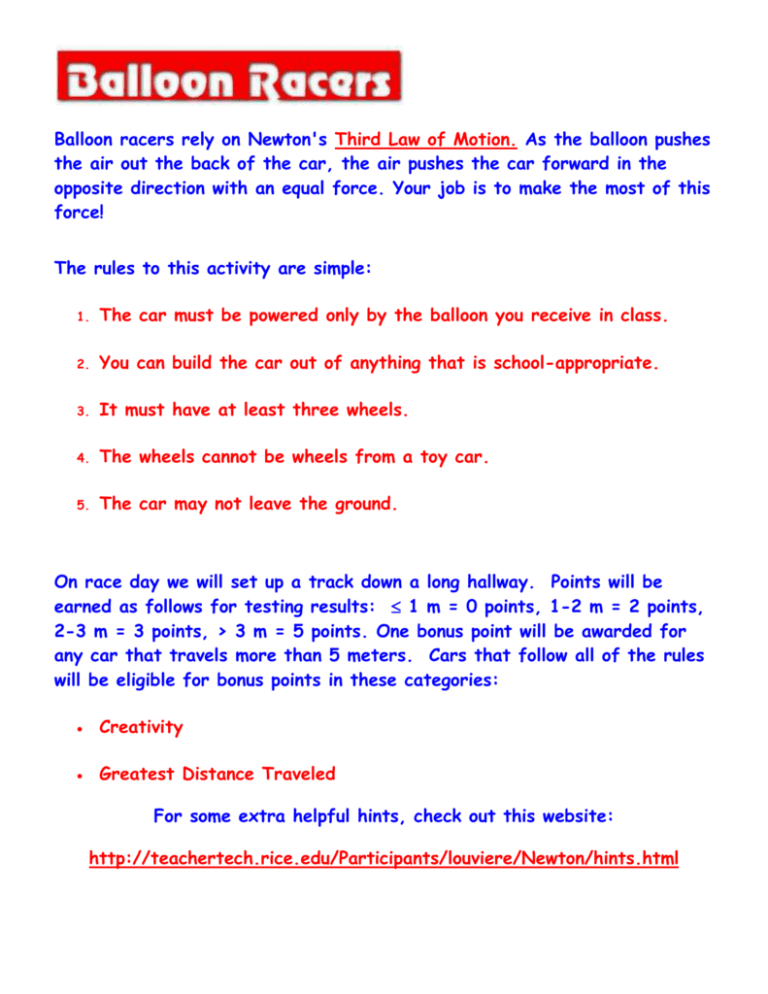
Balloon racers rely on Newton's Third Law of Motion. As the balloon pushes the air out the back of the car, the air pushes the car forward in the opposite direction with an equal force. Your job is to make the most of this force! The rules to this activity are simple: 1. The car must be powered only by the balloon you receive in class. 2. You can build the car out of anything that is school-appropriate. 3. It must have at least three wheels. 4. The wheels cannot be wheels from a toy car. 5. The car may not leave the ground. On race day we will set up a track down a long hallway. Points will be earned as follows for testing results: 1 m = 0 points, 1-2 m = 2 points, 2-3 m = 3 points, > 3 m = 5 points. One bonus point will be awarded for any car that travels more than 5 meters. Cars that follow all of the rules will be eligible for bonus points in these categories: Creativity Greatest Distance Traveled For some extra helpful hints, check out this website: http://teachertech.rice.edu/Participants/louviere/Newton/hints.html The Dreaded Analysis Questions… 1. Write a paragraph which describes your vehicle. Tell me what materials you used for each part and why you chose those materials. Include a diagram and label all important parts. (3 pts.) 2. Write Newton’s 3rd Law of Motion. (1 pt.) 3. Use Newton’s 3rd Law to explain how your vehicle was able to move. Include a labeled force diagram that shows any action-reaction force pairs. (2 pts.) 4. Use Newton’s 3rd Law to explain the motions of the following objects: (2 pts. each) A rocket accelerating through outer space. A propeller-driven airplane. A person swimming in a pool. 5. Suppose you are an astronaut doing a space-walk to fix a piece of heat shield on the space shuttle. You become separated from the shuttle and are floating away toward deep outer space. To make matters worse, your jet-pack propulsion device is out of commission. What could you do to get yourself back to the shuttle? Explain why this would work, using Newton’s 3rd Law of Motion. (3 pts.)
